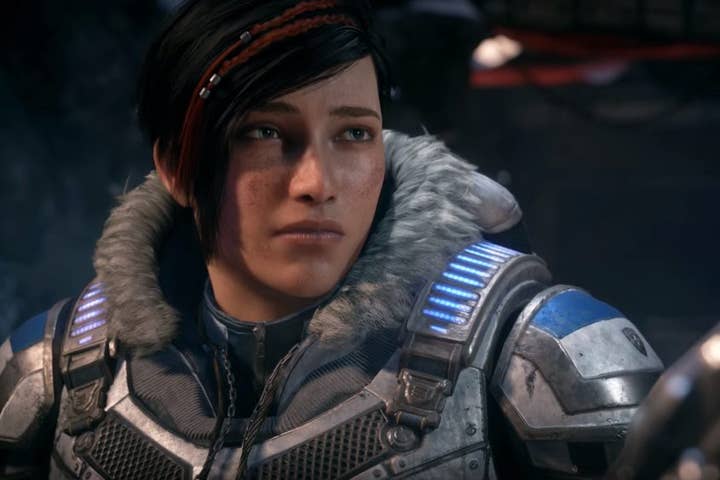Women accounted for 21% of E3 stage presenters, just 5% of game protagonists
But annual Feminist Frequency gender breakdown shows number of games with multiple choice is at a five-year high
Feminist Frequency has released the results of its latest analysis for representation across E3 games line-ups and the figures are, in some ways, disappointing.
The figures show that games with female protagonists has dropped to just 5% -- the second lowest since the site began this annual analysis in 2015. The low point remains 2016, where just two titles (3% of all presented) had female heroes.
This year's analysis covered the Microsoft, Nintendo, Ubisoft, EA, Bethesda and Square Enix conferences, as well as the PC Gaming Show. Of the 126 games on show, "a paltry six" featured exclusively female protagonists, while 28 -- almost five times as many -- put players in the role of male heroes.
On a more positive note, the number of games that feature protagonists of multiple genders, or allow players to choose their own gender, is at a five-year high, accounting for 65% of all games shown at E3 press conferences.
In an article on Wired, the study's authors Sarkeesian and Carolyn Petit said: "As a general trend, the freedom to choose or create your own character is a welcome one."
However, they noted that some of these games are party-based RPGs, which included a significant number of titles -- including Final Fantasy VII and VIII, Dragon Quest XI, The Last Remnant Remastered and others -- that "clearly centre male heroes."
Equally, multiple gender options includes multiplayer-centric games where your character is just an avatar. These don't offer as deep a representation of their gender as a defined game protagonist.
"A male player who is more comfortable with experiences that center men can and will simply play as men in games that offer him the choice," the authors explained. "On the other hand, every player who comes to a game such as Wolfenstein: Youngblood must step into the shoes of a female character in order to play.
"It's also essential to note that the raw numbers say nothing whatsoever about the quality of these representations. The mere fact that Youngblood's protagonists are women is no guarantee whatsoever that those representations will be good ones. Games can and often do centre women while also reinforcing harmful stereotypes or turning those women into sexual fantasies for the benefit of straight male players. Still, we can hope."
Feminist Frequency also analysed the number of women on stage at E3, reporting that this year only 21% of speakers and presenters were female. The site also highlighted particularly low representations at Square Enix and Bethesda's conferences. Both only had two women on stage, versus 13 men at Square Enix and 15 at Bethesda.
"It would be easy to get disheartened by the lack of significant statistical change we've seen over five years of collecting this data, but we choose simply to take it as an indication that there is still work to be done," the study continued.
"Our belief in the vast potential of games as a medium remains as strong as ever, as does our appreciation for all the women and other marginalized people who love games and continue to fight for a better, more diverse and inclusive industry."
We spoke to the site's co-founder Anita Sarkeesian before E3, who said the proportion of female protagonists has yet to rise about 9% in the last five years and didn't expect much change this year.
While she acknowledged that it takes time for an industry to improve the breadth of its representation, she noted the conversation has been prominent for seven years, meaning there are "no excuses" for the lack of women at E3.
The study also looks at how many games centre around combat. Of the 126 games analysed, 107 feature combat of some form, meaning just 19 games (15%) did not.
"Of course, not all combat is the same: the endearing sword-swinging of Link in Nintendo's adorable upcoming remake of The Legend of Zelda: Link's Awakening is a far cry from the grisly demon-slaying of Doom: Eternal. However, we believe that there remains a vast range of unexplored potential for games as a medium, and continue to advocate for a greater percentage of games that explore the possibilities of nonviolent gameplay mechanics."
GamesIndustry.biz conducted its own, more extensive analysis of non-violent games at E3. You can find the results here.

